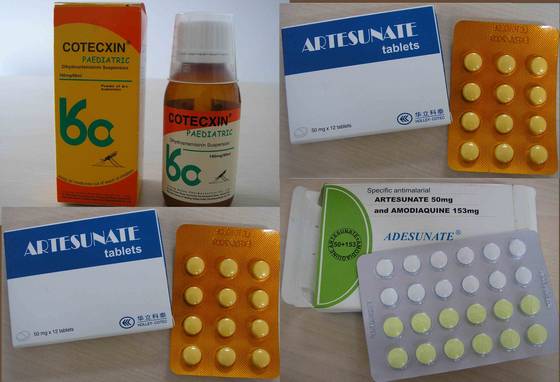Antimalarial Drugs

Q1. Why does only female
anopheles mosquito cause malaria?
A.
because female
are evolutionarily designed to be cruel
B.
because female
need blood from vertebral host to nourish eggs
C.
males find it
difficult to suck blood
D.
blood is the only
diet for female mosquitoes
Answer-
B
Q2. A patient is given an anti-malarial for
plasmodium falciparum. After taking the drug, he has anemia, cynosis,
tachypnoea and passage of dark urine. The patient is given which drug?
A.
chloroquine
B.
mefloquine
C.
artesunate
D.
primaquine
Answer-
D
Primaquine
is a 8-aminoquinine given to prevent relapse by action against hypnozoites. It
should not be given to Glucose-6-phosphate dehydrogenase deficient people. Glucose-6- phosphate dehydrogenase deficiency
leads to less production of NADPH via HMP pathway which is essential for RBC.
Lack of it leads to
heamolysis(passage
of dark urine), cynosis (lack of oxygen due less RBC) and anemia.
Q3. Which of the following 4-
amino quinoline is used for malaria as well as in rheumatoid arthritis and it
causes reversible retinal damage?
A.
chloroquine
B.
pyrimethamine
C.
mefoquine
D.
amodiaquine
Answer- A
Chloroquine causes retinal
damage due to its high plasma binding.
Q4. Which of the following can be used in
pregnancy to treat malaria?
A.
quinine
B.
primaquine
C.
chloroquine
D.
pyrimethamine
Answer-
C
Q5. Biguanides prevent
A.
DHFRase
B.
G6P dehydrogenase
C.
Hemazoin
formation
D.
None of the above
Answer-
Biguanides such as proguanil and pyrimethamine prevent DHFRase
Q6. A person suffers from
cancer and is undergoing chemotherapy. He now contracts malaria. Methotrexate
is given for the chemotherapy and pyrimethamine for malaria. This treatment
should be supplemented with?
A.
Corticosteroids
B.
Folinic acid
C.
Dextrose solution
D.
None of the above
Answer-B
Both
drugs are DHFRase inhibitors which inhibit formation of folic acid in the body.
Hence folinic acid is gven which is converted to active form of folic acid –
THF (tetra hydro folate)
Q7. How do antibacterial drugs like doxycycline and sulphadoxine work against protozoal plasmodium parasite?
A. mechanism unknown
B. by affecting apicoplast enzymes
C. by peroxide formation
D. none of these
Answer- B
apicoplast is plasmid like organelle in plasmodium thought to be aquired from other organism by process of endosymbiosis during its course of evolution. This is used as a potential target against plasmodium.
Q7. How do antibacterial drugs like doxycycline and sulphadoxine work against protozoal plasmodium parasite?
A. mechanism unknown
B. by affecting apicoplast enzymes
C. by peroxide formation
D. none of these
Answer- B
apicoplast is plasmid like organelle in plasmodium thought to be aquired from other organism by process of endosymbiosis during its course of evolution. This is used as a potential target against plasmodium.

